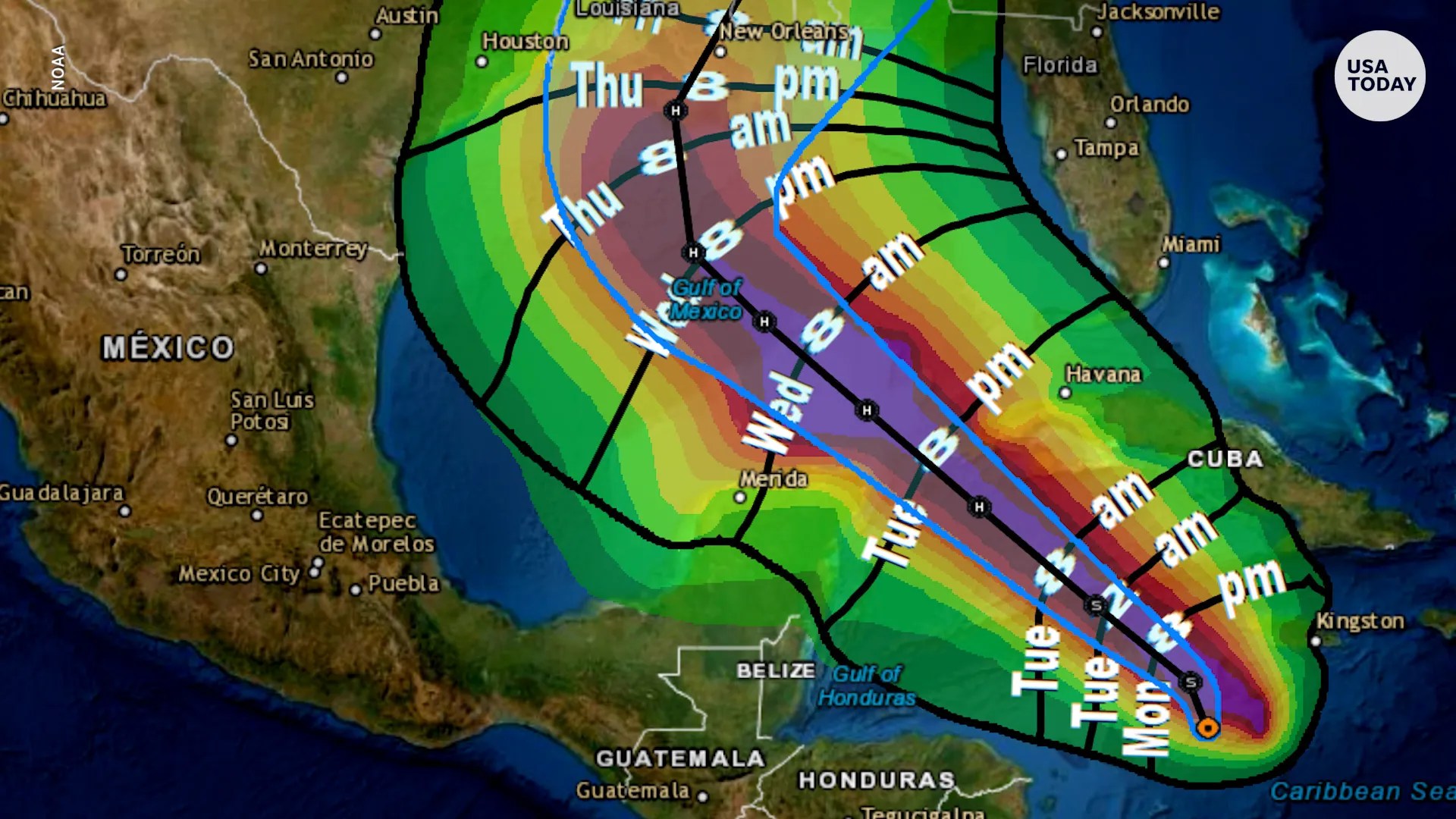What You Need To Know

New tropical storms are a significant concern for meteorologists, coastal communities, and anyone who lives in areas prone to severe weather. As climate change continues to impact weather patterns globally, understanding these storms becomes increasingly crucial. In this article, we will explore what tropical storms are, how they form, their potential impacts, and ways to prepare for them.
Every year, tropical storms develop over warm ocean waters, often leading to hurricanes and other severe weather phenomena. With the increasing intensity and frequency of these storms, it is vital to stay informed and prepared. This comprehensive guide aims to equip you with essential knowledge about new tropical storms, their characteristics, and safety measures you can take.
Furthermore, the article will delve into statistical data regarding tropical storms and their effects, providing a deeper understanding of this natural occurrence. By the end of this article, you will have a solid grasp of what constitutes a new tropical storm and how to safeguard yourself and your loved ones.
Table of Contents
What is a Tropical Storm?
A tropical storm is a type of storm system characterized by organized thunderstorms and a defined circulation pattern. It typically forms over warm ocean waters and is classified when wind speeds reach between 39 to 73 miles per hour (63 to 118 kilometers per hour).
Tropical storms can develop into hurricanes if wind speeds exceed 74 miles per hour (119 kilometers per hour). They are a crucial part of the Earth's weather systems and can lead to significant weather events, including heavy rainfall, flooding, and strong winds.
How Do Tropical Storms Form?
Tropical storms form under specific conditions, including:
- Warm ocean water (at least 80°F or 27°C)
- Moisture in the atmosphere
- Low wind shear (the change in speed or direction of winds at different altitudes)
- A pre-existing weather disturbance
When these conditions are met, a tropical depression may form, eventually escalating to a tropical storm as wind speeds increase. The process is typically observed in tropical and subtropical regions, particularly during the Atlantic hurricane season, which runs from June 1 to November 30.
Impacts of Tropical Storms
The impacts of tropical storms can be devastating and wide-ranging. Some common effects include:
- Heavy rainfall leading to flash floods
- Strong winds causing property damage
- Storm surges that inundate coastal areas
- Disruption of transportation and communication systems
Additionally, tropical storms can lead to long-term economic and environmental impacts, affecting agriculture and local ecosystems. Understanding these potential impacts is crucial for planning and preparedness.
Preparation for Tropical Storms
Being prepared for a tropical storm can save lives and minimize property damage. Here are some essential steps to take:
- Create an emergency plan for your family.
- Assemble an emergency kit with essential supplies.
- Stay informed about weather updates and warnings.
- Know your evacuation routes and shelters.
Preparation is key, and it is crucial to act before a storm threatens your area. Local governments often provide resources and information to help residents prepare effectively.
Historical Data and Statistics
According to the National Oceanic and Atmospheric Administration (NOAA), the frequency of tropical storms has increased over the past several decades. For example:
- In the 1970s, an average of 8.6 tropical storms formed annually.
- In the 2020s, that average has risen to nearly 15 storms per year.
This increase highlights the importance of understanding tropical storms and their potential impacts. Accurate data and historical trends can help improve forecasting and preparedness efforts.
New Tropical Storms in 2023
The year 2023 has seen several new tropical storms forming, including notable ones that have impacted various regions. Meteorologists have been closely monitoring these developments to provide timely updates and safety information.
Some recently identified storms include:
- Tropical Storm Arlene
- Tropical Storm Bret
- Tropical Storm Cindy
Each of these storms has unique characteristics and potential impacts, underscoring the need for vigilance and preparedness.
Global Warming and Tropical Storms
Climate change is a significant factor influencing the behavior and frequency of tropical storms. Research indicates that warmer ocean temperatures lead to more intense storms with increased rainfall and wind speeds.
Additionally, rising sea levels contribute to more severe storm surges, further threatening coastal areas. Understanding the relationship between global warming and tropical storms is essential for developing effective adaptation and mitigation strategies.
Conclusion
In summary, understanding new tropical storms is vital for safety and preparedness. By recognizing how these storms form, their potential impacts, and the necessary preparation steps, individuals can protect themselves and their communities.
We encourage you to stay informed about tropical storms and share this information with others. If you have any questions or insights regarding tropical storms, please leave a comment, and don't forget to explore other articles on our site for more valuable information.
References
Thank you for reading, and we hope to see you back here for more insightful articles!
You Also Like
Sharon Stone Nude: A Deep Dive Into The Iconic Actress And Her Bold ChoicesUnderstanding The Worst Aesthetic Surgery: Common Mistakes And Consequences
Kate Middleton Reportedly Misses Out On Prince William's Scotland Trip
Exploring The Allure Of Anna Sui Perfume: A Journey Through Fragrance
David Hyde Pierce: Frasier Reboot And What To Expect
Article Recommendations
ncG1vNJzZmiZlKK2r3rBqKmdnaKhrq%2Bw0mespGaTpLpwtsimpLJuX6OyuHnTq6apoZOWuW6%2F06ippmaYqbqt